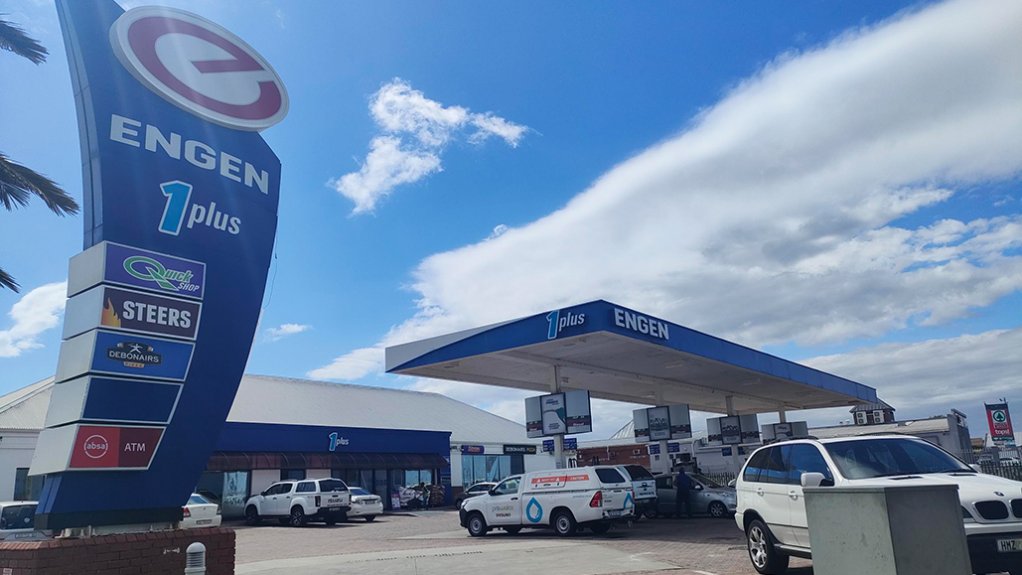

Tribunal approves Vitol’s buyout of Engen
The Competition Tribunal has approved the proposed acquisition of petrol station brand Engen by independent energy marketing and trading company Vitol Emerald, subject to a set of competition and public interest conditions.
The tribunal’s order follows a hearing last month during which it heard submissions from the Competition Commission, the merging parties, the Department of Trade, Industry and Competition (dtic), Sasol South Africa, Astron Energy South Africa, the National Union of Metalworkers of South Africa, and the Chemical, Energy, Paper Printing, Wood and Allied Workers Union.
Following the hearing, the tribunal requested additional submissions from the commission, the merging parties, Sasol and Astron Energy.
MERGING PARTIES
Vitol supplies and distributes crude oil, petroleum products and natural gas globally.
In South Africa, through a subsidiary, it is engaged in the importation of crude oil and the wholesale supply of refined petroleum products to major oil marketing companies and independent wholesalers and resellers. Vitol jointly controls the Burgan Cape Terminal, a storage and distribution facility in Cape Town.
Engen is focused on the supply, distribution and marketing of petroleum products including, among others, petrol, diesel, lubricants and chemicals.
In South Africa, it imports, supplies and distributes refined petroleum products to the retail market. Engen owns and leases storage facilities in Durban and Cape Town.
COMMISSION’S THEORIES OF HARM AND CONCERNS
The commission, which assesses large mergers and makes a recommendation to the tribunal for a decision, found that the proposed merger raised various competition concerns.
Among these was the issue of customer foreclosure, as Engen is a significant customer for locally refined petroleum products. It procures refined petroleum products from local refineries that include Astron Energy’s Cape Town refinery and Sasol’s Natref and Secunda refineries.
The commission was also concerned about the merging parties’ significant storage tank capacity in Cape Town and Durban, raising concerns that the merger may lead to locally refined petroleum products being displaced by imports, which would have a negative impact on the petrochemical industry and the remaining local refineries.
Another further concern raised by the commission was the potential information exchange concerns relating to the liquefied petroleum gas market.
The commission also found that the proposed merger raised public interest concerns, in particular the effect of the transaction on the promotion of a greater spread of ownership and the effect of the transaction on employment.
TRIBUNAL DECISION
After considering all of the submissions, the tribunal approved the transaction subject to both competition and public interest conditions.
For one, conditions are imposed in relation to procurement from Sasol and Astron Energy to address the customer foreclosure concern and the effect of the merger on the South African petrochemical industry.
Insofar as Sasol is concerned, Engen and any companies under its control will procure certain products from Sasol's Natref and Secunda refineries in line with a supply contract containing terms set out in the conditions. These terms include issues such as certain minimum procurement volumes, the contract term, pricing principles, and dispute resolution provisions.
Further, Engen will be required to enter into a supply contract with Astron Energy in terms of which Engen will procure from Astron certain products produced by Astron Energy's Cape Town refinery on the terms and conditions set out in the conditions. The conditions relate to issues such as certain minimum procurement volumes, the contract term, pricing principles, and dispute resolution provisions.
In terms of public interest concerns, the tribunal ruled that, within six months after the closing date of the transaction, Vitol will need to ensure Engen establishes a new evergreen or perpetual employee share ownership plan (ESOP) that will hold a fully voting shareholding of 5% in Engen Petroleum, which will be issued at a discount.
Within five years after the closing date, Vitol will have to ensure the increase in direct broad-based black economic empowerment (BBBEE) ownership in Engen Petroleum by increasing the ESOP's 5% shareholding to 7%.
Within seven years after the closing date, Vitol will have to facilitate the increase in direct BBBEE ownership in Engen Petroleum by increasing the ESOP’s shareholding to 9%.
The ESOP will be structured in accordance with the BBBEE Codes and will need to adhere to several key principles.
For example, the beneficiaries of the ESOP will be all full-time employees of Engen Petroleum below senior management employed in South Africa, with the majority of qualifying employees being historically disadvantaged.
There will also need to be equal allocation, meaning that all qualifying employees must be treated equally in terms of voting and economic participation with no differentiation across employee grades.
The funding of the ESOP will need to be fully facilitated through a notional vendor funding mechanism with a subsidised funding rate at a certain percentage of the South African prime lending rate, while no upfront contribution will be required from employees to participate.
Moreover, a trickle dividend will need to be paid to the ESOP each year, comprising a minimum cash amount that will rise every year over five years at the inflation rate, irrespective of Engen Petroleum's profit position.
In addition, an amount will have to be paid equal to a certain percentage of the ESOP's remaining dividend allocation, which will be subject to yearly operational performance and profit generation of Engen Petroleum.
The costs of establishing and administering the ESOP will be for Engen to pay.
In terms of employment, headcount will need to be maintained up to four years following the closing date. Vitol will need to ensure that the total aggregate number of employees of Engen and Vivo South Africa will not fall below a determined headcount number.
Moreover, no merger-specific retrenchments will be allowed.
Engen will be required to spend a large amount of cumulative capital expenditure to maintain and grow its operations in South Africa to ensure a modern and efficient business.
To support local historically disadvantaged persons (HDPs) in South Africa, Engen will need to maintain its HDP procurement benchmark ratio and will be expected to increase it where possible.
Moreover, Engen will not be allowed to decrease the current proportionate levels of expenditure on South African goods and services, while Vivo Energy will have to increase its pan-African procurement of South African products and services, up to a specified value each year.
Vivo Energy will aso be expected to make reasonable efforts to introduce South African supply companies to the owners of retail service stations in its network.
Engen will remain incorporated and headquartered in South Africa and remain a tax resident of South Africa.




